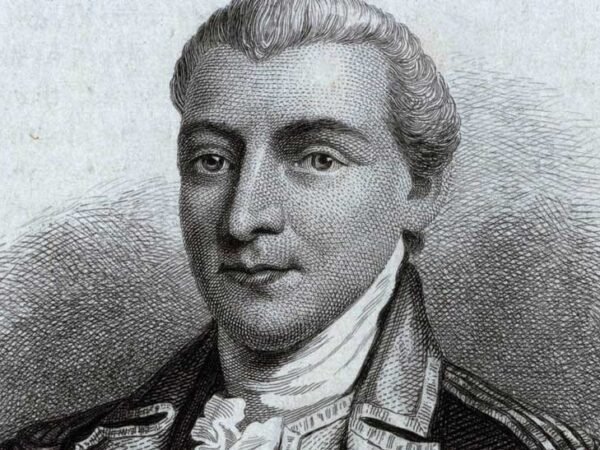Behind every great star often stands an equally remarkable individual whose own achievements deserve recognition. Charles Alden Black exemplified this truth throughout his extraordinary life as a decorated naval officer, pioneering businessman, and devoted husband to Hollywood legend Shirley Temple. His story weaves together military heroism, entrepreneurial innovation, and unwavering support for one of America’s most beloved entertainers.
While many knew him primarily as the husband of the famous child star, Charles Alden Black carved out his own distinguished legacy across multiple fields. From the dangerous waters of the South Pacific during World War II to the boardrooms of innovative maritime companies, he demonstrated the kind of versatility and excellence that defined America’s greatest generation.
Early Life and Distinguished Heritage
Charles Alden Black entered the world on March 6, 1919, in Oakland, California, carrying the bloodline of American pioneers and leaders. His ancestry traced back to some of the most significant figures in early American history, including John Alden, the famous passenger aboard the Mayflower who helped establish Plymouth Colony. Through his mother’s lineage, he also descended from Cherokee chief Oconostota, adding Native American heritage to his diverse background.
Growing up in San Francisco, Charles enjoyed the privileges that came with his family’s prominent social position. His father, James Byers Black, served as president and chairman of the Pacific Gas and Electric Company, one of California’s most influential utility corporations. This exposure to business leadership from an early age would later influence Charles’s own entrepreneurial pursuits.
The Black family valued education highly, sending Charles to the prestigious Hotchkiss School in Connecticut for his preparatory education. This elite institution prepared him well for his next academic challenge at Stanford University, where he would excel both academically and socially as a member of the Delta Upsilon fraternity.
Naval Service and War Hero
When World War II erupted, Charles Black answered his country’s call with the same determination that characterized his entire life. In 1941, after attending Harvard Business School for a year, he joined the United States Navy as an intelligence officer, beginning what would become one of the most distinguished military careers of his generation.
His initial assignment took him to Australia, where he served on the staff of General Douglas MacArthur during some of the Pacific Theater’s most critical operations. However, it was his subsequent role as a scout behind enemy lines in Indonesia that truly tested his courage and skill. Operating in extremely dangerous conditions, Black completed more than 100 PT boat patrols, gathering vital intelligence that helped Allied forces gain strategic advantages.
The Navy recognized his exceptional bravery and service with the Silver Star, one of the military’s highest honors for valor in combat. His willingness to risk his life repeatedly for his country demonstrated the character that would define all his future endeavors. When the Korean War began, Black once again served his nation, this time as a commander in the naval reserves, proving that his commitment to military service extended well beyond a single conflict.
Meeting the Hollywood Star
Fate intervened in Charles Black’s life during a seemingly ordinary evening in Hawaii in 1950. Working for a shipping company on the islands, he received an invitation to a party honoring Shirley Temple, the former child star who had captivated America throughout the 1930s and early 1940s. At 22, Temple had already appeared in more than 40 films and remained one of Hollywood’s most recognizable figures.
Black’s response to the invitation revealed his priorities and personality perfectly. He told the hosts he would attend only if the surfing conditions weren’t favorable that day. As Shirley Temple Black would later recall with fondness, “We would never have met if the surfing was good that day.” This chance encounter, dependent on ocean conditions and a surfer’s dedication to his sport, would change both their lives forever.
The connection between the war hero and the Hollywood star proved immediate and lasting. Despite their different backgrounds, they shared values of service, dedication, and integrity that formed the foundation of their relationship. By the end of 1950, they had married, beginning a partnership that would endure for 55 years until Charles’s death in 2005.
Pioneer in Maritime Industry
Following his military service and marriage, Charles Black channeled his leadership skills and strategic thinking into the business world. His early corporate experience included executive positions at Stanford Research Institute from 1952 to 1957, followed by a significant role at Ampex Corporation from 1957 to 1965. These positions provided him with valuable experience in emerging technologies and innovative business practices.
However, Black’s true passion lay with the ocean that had shaped so much of his life. In the early 1960s, he recognized the potential of aquaculture long before it became a mainstream industry. He co-founded a hatchery operation focused on oysters and abalone at Pigeon Point, California, demonstrating his ability to identify and capitalize on emerging market opportunities.
His entrepreneurial vision led to the establishment of Mardela Corporation, a Burlingame-based fishery and hatchery company that became a leader in both marine and freshwater aquaculture. Under his leadership, the company pioneered techniques for catfish and salmon farming that would later be adopted throughout the industry. Black’s work in this field positioned him as one of the early innovators in sustainable seafood production.
Oceanographic Achievements and Leadership
Charles Black’s expertise in maritime affairs extended far beyond commercial ventures into the realm of scientific research and international policy. His involvement with the Marquest Group, co-founded with renowned oceanographer Robert Ballard after the discovery of the Titanic in 1985, demonstrated his commitment to advancing deep-ocean exploration and research capabilities.
The company developed cutting-edge unmanned deep-ocean search and survey imaging systems that revolutionized underwater exploration. Black’s business acumen combined with Ballard’s scientific expertise created innovations that served both commercial and research purposes, contributing significantly to our understanding of the ocean’s depths.
His reputation as a maritime expert earned him appointments to numerous prestigious advisory positions. He served as a delegate to the United Nations Law of the Sea negotiations, helping shape international maritime law that governs ocean use today. His expertise also proved valuable to the UN International Maritime Consultative Organizations, where his practical experience complemented academic and diplomatic perspectives.
Supporting a Diplomatic Career
When Shirley Temple Black transitioned from entertainment to diplomacy, Charles provided unwavering support for her groundbreaking career in international relations. His own experience with international affairs and business made him an ideal partner for someone navigating the complex world of diplomatic service.
During her appointment as ambassador to Ghana, Charles accompanied his wife, providing both personal support and practical insights drawn from his extensive international business experience. His understanding of different cultures and his ability to build relationships across diverse backgrounds proved invaluable during their time in West Africa.
Later, when Shirley served as Chief of Protocol for the United States and subsequently as ambassador to Czechoslovakia during the final years of the Cold War, Charles continued his supportive role. His discretion, intelligence, and social skills made him an asset at diplomatic functions and helped create the stable home environment that allowed his wife to excel in her demanding roles.
Personal Passions and Community Service
Despite his numerous professional commitments, Charles Black maintained his lifelong passion for the ocean through recreational activities that kept him connected to the waters that had shaped his character. As an avid surfer, he continued riding waves well into his later years, demonstrating the same fearlessness that had characterized his military service.
His love for sailing led him to participate twice in the prestigious TransPacific Yacht Race, sailing from the Golden Gate Bridge to Diamond Head in Hawaii. These challenging ocean crossings required the same strategic thinking, teamwork, and perseverance that had made him successful in business and military service.
Black’s commitment to community service manifested through his involvement with several charitable and educational organizations. As one of six founders of the Guardsmen, a San Francisco-based charity, he helped establish an organization that continues to serve the community today. His service on the boards of the University of Santa Clara and the College of Notre Dame reflected his belief in the importance of education and his willingness to contribute his time and expertise to worthy causes.
Legacy and Final Years
Charles Alden Black’s final years were marked by continued involvement in maritime consulting and his ongoing support for his wife’s various endeavors. Even as age began to limit his physical activities, his sharp mind and vast experience remained valuable resources for colleagues and clients seeking guidance on complex maritime issues.
On August 4, 2005, at his home in Woodside, California, Charles Black passed away from complications related to myelodysplastic syndrome, a bone marrow disorder. He was 86 years old and had lived a life that exemplified service, innovation, and dedication to both family and country.
His death marked the end of an era, but his legacy continues through the industries he helped pioneer, the institutions he served, and the family he loved. Survived by his wife Shirley Temple Black, his children Charles Jr. and Lori, stepdaughter Susan, and granddaughter Teresa, he left behind a family that carries forward his values of service and excellence.
The impact of Charles Alden Black’s life extends far beyond his role as the husband of a Hollywood star. His contributions to naval intelligence, aquaculture innovation, oceanographic research, and international maritime policy created lasting benefits for society. He proved that behind every great partnership stands individuals whose own achievements deserve recognition and remembrance.













